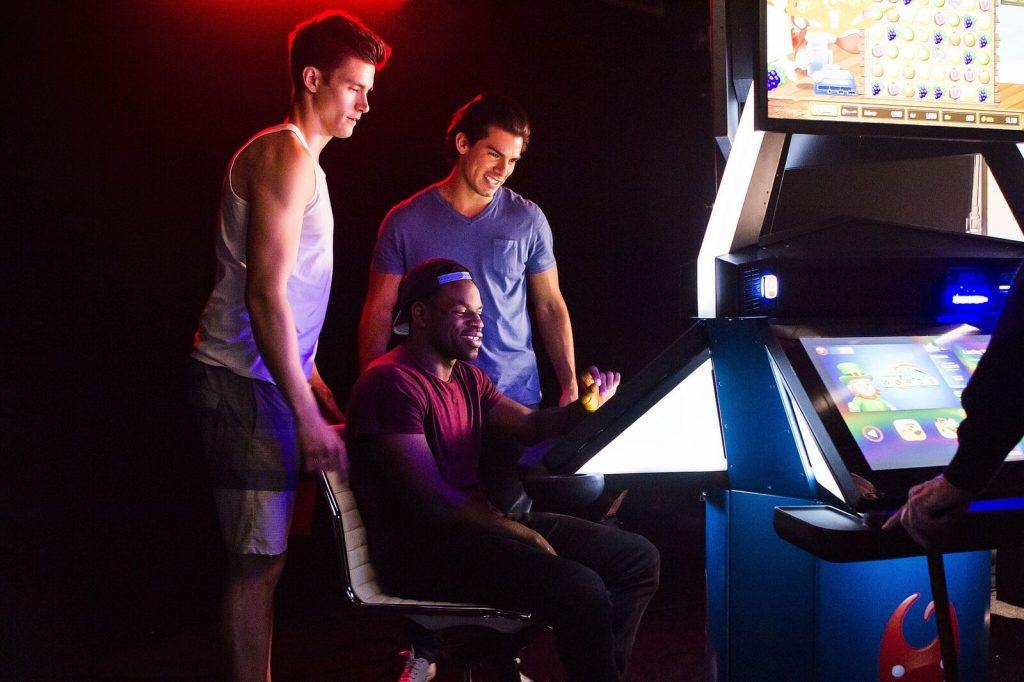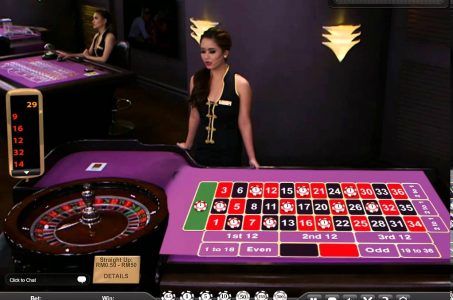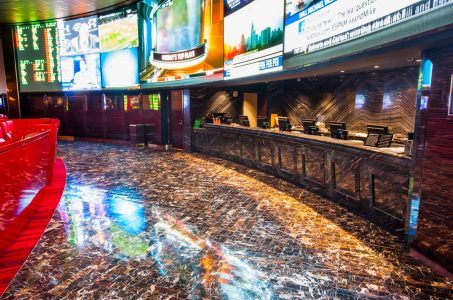Skill-Based Gaming Heavily Touted as Future at G2E, But Facts Don’t Bear Out Hype
Posted on: October 13, 2018, 08:00h.
Last updated on: October 12, 2018, 09:15h.
This year’s Global Gaming Expo (G2E) — which wound down on Thursday in Las Vegas — had skill-based gaming front and center, with several companies showing off what they think might be the future of the genre throughout the week.

“That is what our industry needs. We need new players and new dollars and what that takes is innovative new products,” Blaine Graboyes of GameCo told KTNV Las Vegas news.
Generational Adjustments
“One of the things for us is to make fun video games people already know and turn it into experiences you can wager on,” Gamblit Gaming representative Darion Lowenstein told KTNV.
He noted that the average age of a person playing a traditional slot machine is 58, whereas the average age of a person playing on a Gamblit machine is 36 years old.
The company’s machines offer games like Pac-Man, as well as Road Redemption, a game where players “earn money while winning races, annihilating enemy bikers, and causing destruction with a strategically placed C-4,” and High Orbit, a game where players “blow up aliens and asteroids to win cash.”
Not Showing Anyone the Money
Skill-based games are still in their infancy, and despite much brouhaha from developers, have been received with less-than-ecstatic reaction by actual gamblers.
Caesars Entertainment and MGM Resorts rolled out Gamblit machines last year after the company secured $25 million in investments to expand operations.
Caesars’ Planet Hollywood Las Vegas and LVS’ Venetian both installed Model G tables and TriStation units from Gamblit last year. The Model G tables were designed as social gaming experiences with at least two players. TriStations feature single or multiplayer games like zombie shooters and word games.
Earlier this year, Station Casinos installed TriStations at Red Rock Casino, Green Valley Ranch, and Texas Station in Las Vegas.
But skill-based games to date haven’t turned enough profit to sustain their floor space. Caesars installed 21 skill-based GameCo games at three Atlantic City casinos last year, but pulled them after a six-month trial wasn’t as successful as executives had hoped.
“We all understood that we were learning and experimenting. It was a big learning experience for all of us. People have to come find the games in a sea of 1,500 slots,” Melissa Price, senior vice president of gaming enterprise for Caesars, said at the time.
Tropicana Atlantic City executives have said they’ll stick it out through the growing pains. General Manager Steve Callender said that new customers are playing, even if they aren’t coming in droves yet.
Although they don’t perform to the level of our traditional slot machines, we’re generating incremental revenue from this new demographic,” he said.
Traditional slots — namely, very non-skilled based gaming — continue to dominate the casino floors of virtually every Las Vegas casino, however. Despite several years of the industry — and, of course, the new game developers themselves — telling us that skill-based gaming is the next big thing, actual generated revenues have yet to bear this out.
Related News Articles
Most Popular
This Pizza & Wings Costs $653 at Allegiant VIP Box in Vegas!
Sphere Threat Prompts Dolan to End Oak View Agreement
Fairfax County Officials Say No NoVA Casino in Affluent Northern Virginia
Atlantic City Casinos Experience Haunting October as Gaming Win Falls 8.5%
Most Commented
-
VEGAS MYTHS RE-BUSTED: Casinos Pump in Extra Oxygen
— November 15, 2024 — 4 Comments -
VEGAS MYTHS RE-BUSTED: The Final Resting Place of Whiskey Pete
— October 25, 2024 — 3 Comments
















Last Comment ( 1 )
We love the skill based games and play the Gamblit ones every chance we get. The problem with Gamblit’s implementation is there is not a noticeable correlation between skill and reward. Getting a high score doesn’t give a higher chance of payout regardless of the pay tables. Often other potential players will approach us while playing and want to know how to increase the odds of winning big. Unlike the IGT Skill base games where you know what you will win if you have the skill, the Gamblit doesn’t reward for a high score or difficulty move/action. The IGT fail now as they need to vary or in increase skill required so regulars can just learn the ropes and drain down the machines. There needs to be a potential pot to win that’s visible to the player and that they can use there skill to potentially win it.